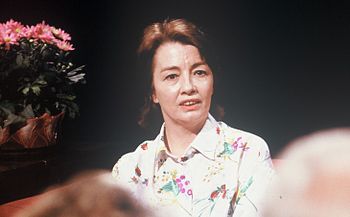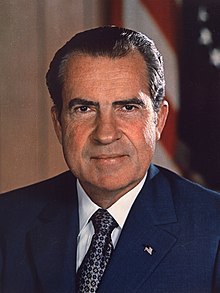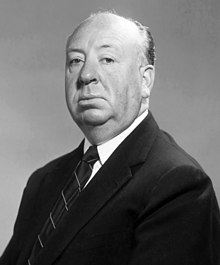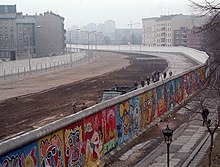The 1960s Portal
The 1960s became synonymous with the new, radical, and subversive events and trends of the period. In Africa the 1960s was a period of radical political change as 32 countries gained independence from their European colonial rulers. Some commentators have seen in this era a classical Jungian nightmare cycle, where a rigid culture, unable to contain the demands for greater individual freedom, broke free of the social constraints of the previous age through extreme deviation from the norm. Christopher Booker charts the rise, success, fall/nightmare and explosion in the London scene of the 1960s. However, this alone does not explain the mass nature of the phenomenon. Several nations such as the U.S., France, Germany and Britain turned to the left in the early and mid 1960s. In the United States, John F. Kennedy, a Keynesian and staunch anti-communist, pushed for social reforms. His assassination in 1963 was a stunning shock. Liberal reforms were finally passed under Lyndon B. Johnson including civil rights for African Americans and healthcare for the elderly and the poor. Despite his large-scale Great Society programs, Johnson was increasingly reviled by the New Left at home and abroad. The heavy-handed American role in the Vietnam War outraged student protestors across the globe, as they found peasant rebellion typified by Ho Chi Minh and Che Guevara more appealing. Italy formed its first left-of-center government in March 1962 with a coalition of Christian Democrats, Social Democrats, and moderate Republicans. Socialists joined the ruling block in December 1963. In Britain, the Labour Party gained power in 1964. In Brazil, João Goulart became president after Jânio Quadros resigned. This is a Featured article, which represents some of the best content on English Wikipedia..
 The 1969 Curaçao uprising (Papiamento: Trinta di Mei, 'Thirtieth of May') was a series of riots on the Caribbean island of Curaçao, then part of the Netherlands Antilles, a semi-independent country in the Kingdom of the Netherlands. The uprising took place mainly on 30 May but continued into the night of 31 May – 1 June 1969. The riots arose from a strike by workers in the oil industry. A protest rally during the strike turned violent, leading to widespread looting and destruction of buildings and vehicles in the central business district of Curaçao's capital, Willemstad. Several causes for the uprising have been cited. The island's economy, after decades of prosperity brought about by the oil industry, particularly a Shell refinery, was in decline and unemployment was rising. Curaçao, a former colony of the Netherlands, became part of the semi-independent Netherlands Antilles under a 1954 charter, which redefined the relationship between the Netherlands and its former colonies. Under this arrangement, Curaçao was still part of the Kingdom of the Netherlands. Anti-colonial activists decried this status as a continuation of colonial rule but others were satisfied the political situation was beneficial to the island. After slavery was abolished in 1863, black Curaçaoans continued to face racism and discrimination. They did not participate fully in the riches resulting from Curaçao's economic prosperity and were disproportionately affected by the rise in unemployment. Black power sentiments in Curaçao were spreading, mirroring developments in the United States and across the Caribbean, of which Curaçaoans were very much aware. The Democratic Party dominated local politics but could not fulfill its promise to maintain prosperity. Radical and socialist ideas became popular in the 1960s. In 1969, a labor dispute arose between a Shell sub-contractor and its employees. This dispute escalated and became increasingly political. A demonstration by workers and labor activists on 30 May became violent, sparking the uprising. (Full article...)This is a Good article, an article that meets a core set of high editorial standards.
 On the left, largely obscured, are #60 Sam DeLuca and #70 Sherman Plunkett. The 1961 San Diego Chargers season was the team's second in the American Football League. Following a move from Los Angeles, it was the Chargers' first season in San Diego, where the team remained until returning to Los Angeles in 2017. The Chargers won their first eleven games and clinched the Western Division by mid-November. They lost form in December, with only one victory in their final three regular season games, and finished at 12–2, six games ahead of runner-up Dallas. Like the previous season, the Chargers' season ended with a loss to the Houston Oilers in the AFL championship game, this time 10–3 at Balboa Stadium in San Diego. (Full article...)Selected picture - Christine Keeler, best known for her involvement in the Profumo Affair, which lead to the resignation of British Prime Minister Harold Macmillan.
Did you know -
Related portalsThis is a Featured article, which represents some of the best content on English Wikipedia..
Richard Milhous Nixon (January 9, 1913 – April 22, 1994) was an American politician and lawyer who served as the 37th president of the United States from 1969 to 1974. A member of the Republican Party, he previously served as a representative and senator from California and as the 36th vice president from 1953 to 1961 under President Dwight D. Eisenhower. His presidency saw the reduction of U.S. involvement in the Vietnam War, détente with the Soviet Union and China, the Apollo 11 Moon landing, and the establishment of the Environmental Protection Agency and Occupational Safety and Health Administration. Nixon's second term ended early when he became the only U.S. president to resign from office, as a result of the Watergate scandal. Nixon was born into a poor family of Quakers in Yorba Linda, Southern California. He graduated from Duke Law School in 1937, practiced law in California, and then moved with his wife Pat to Washington, D.C., in 1942 to work for the federal government. After serving active duty in the Naval Reserve during World War II, he was elected to the House of Representatives in 1946. His work on the Alger Hiss case established his reputation as a leading anti-communist. In 1950, he was elected to the Senate. Nixon was the running mate of Eisenhower, the Republican Party's presidential nominee in the 1952 election, and served for eight years as vice president. He narrowly lost the 1960 presidential election to John F. Kennedy. After his loss in the 1962 race for governor of California, he announced his retirement from politics. However, in 1968, he made another run for the presidency and defeated the Democratic incumbent vice president Hubert Humphrey. (Full article...)This is a Good article, an article that meets a core set of high editorial standards.
Sir Alfred Joseph Hitchcock KBE (13 August 1899 – 29 April 1980) was an English film director. He is widely regarded as one of the most influential figures in the history of cinema. In a career spanning six decades, he directed over 50 feature films, many of which are still widely watched and studied today. Known as the "Master of Suspense", Hitchcock became as well known as any of his actors thanks to his many interviews, his cameo appearances in most of his films, and his hosting and producing the television anthology Alfred Hitchcock Presents (1955–65). His films garnered 46 Academy Award nominations, including six wins, although he never won the award for Best Director, despite five nominations. Hitchcock initially trained as a technical clerk and copywriter before entering the film industry in 1919 as a title card designer. His directorial debut was the British–German silent film The Pleasure Garden (1925). His first successful film, The Lodger: A Story of the London Fog (1927), helped to shape the thriller genre, and Blackmail (1929) was the first British "talkie". His thrillers The 39 Steps (1935) and The Lady Vanishes (1938) are ranked among the greatest British films of the 20th century. By 1939, he had international recognition and producer David O. Selznick persuaded him to move to Hollywood. A string of successful films followed, including Rebecca (1940), Foreign Correspondent (1940), Suspicion (1941), Shadow of a Doubt (1943) and Notorious (1946). Rebecca won the Academy Award for Best Picture, with Hitchcock nominated as Best Director. He also received Oscar nominations for Lifeboat (1944), Spellbound (1945), Rear Window (1954) and Psycho (1960). (Full article...)Selected article -The Berlin Wall (German: Berliner Mauer, pronounced [bɛʁˌliːnɐ ˈmaʊɐ] ) was a guarded concrete barrier that encircled West Berlin of the Federal Republic of Germany (FRG; West Germany) from 1961 to 1989, separating it from East Berlin and the German Democratic Republic (GDR; East Germany). Construction of the Berlin Wall was commenced by the government of the GDR on 13 August 1961. It included guard towers placed along large concrete walls, accompanied by a wide area (later known as the "death strip") that contained anti-vehicle trenches, beds of nails and other defenses. The primary intention for the Wall's construction was to prevent East German citizens from fleeing to the West. The Soviet Bloc propaganda portrayed the Wall as protecting its population from "fascist elements conspiring to prevent the will of the people" from building a communist state in the GDR. The authorities officially referred to the Berlin Wall as the Anti-Fascist Protection Rampart (German: Antifaschistischer Schutzwall, pronounced [antifaˌʃɪstɪʃɐ ˈʃʊtsval] ). Conversely, West Berlin's city government sometimes referred to it as the "Wall of Shame", a term coined by mayor Willy Brandt in reference to the Wall's restriction on freedom of movement. Along with the separate and much longer inner German border, which demarcated the border between East and West Germany, it came to symbolize physically the Iron Curtain that separated the Western Bloc and Soviet satellite states of the Eastern Bloc during the Cold War. (Full article...)More Did you know (auto generated)
TopicsCategoriesWikiProjects
Associated WikimediaThe following Wikimedia Foundation sister projects provide more on this subject:
Discover Wikipedia using portals |





























